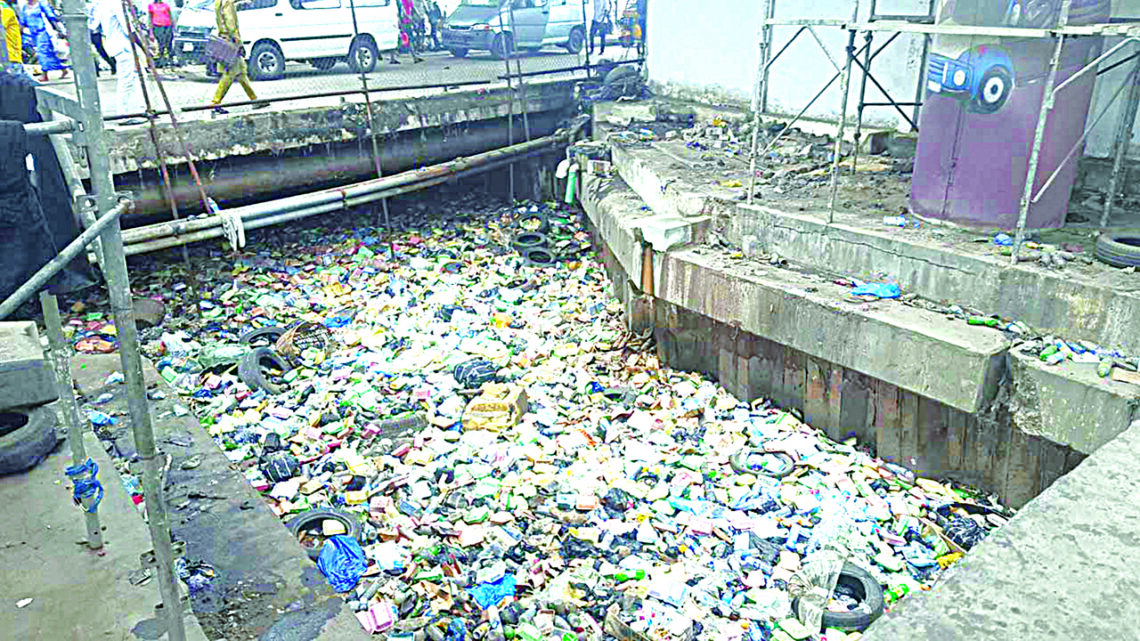As Nigeria inches deeper into the rainy season, images of flooded streets, submerged homes, and traffic-stalled cities are once again dominating headlines. From Lagos to Lokoja, Port Harcourt to Makurdi, the story is the same: blocked drainages have turned routine rains into disasters, causing damage to infrastructure, property, and livelihoods. Yet, year after year, the cycle continues avoidable, predictable, and costly.
What often escapes the public debate is that beyond the human and environmental toll, clogged drainages are draining Nigeria’s economy. Billions of naira are lost annually to flood-related destruction, amaged roads, collapsed bridges, destroyed crops, health crises, and displacement of families. According to the National Emergency Management Agency (NEMA), Nigeria loses over ₦2.6 trillion ($6 billion) to flooding and erosion annually. A significant share of this loss could be avoided through a basic, routine practice: clearing the nation’s drainages.
Drainage clearance is not just a sanitation issue, it is an economic strategy. Preventive maintenance of urban and rural water channels saves money by preserving critical infrastructure, avoiding emergency repairs, and reducing the need for costly post-disaster interventions. Take roads, for instance. Waterlogged roads deteriorate faster, leading to frequent reconstructions that strain federal and state budgets. In contrast, functioning drainage systems extend the lifespan of these assets and reduce the frequency of capital-intensive rehabilitations.
Floods also compromise productivity. Markets are shut, goods are damaged, and mobility grinds to a halt. In cities like Lagos, where commerce and transportation are vital to daily economic activity, hours lost to waterlogged roads translate directly to lost revenue and rising operational costs for businesses and commuters alike. For a country seeking to grow its non-oil economy and improve its ease of doing business, addressing urban flooding must be seen as a core component of economic policy.
Moreover, health expenditures rise with poor drainage. Stagnant water becomes breeding grounds for malaria-carrying mosquitoes and waterborne diseases such as cholera and typhoid. These preventable illnesses impose a heavy burden on families and already stretched public health systems. The World Health Organization (WHO) estimates that every dollar spent on sanitation can yield four dollars in economic returns by reducing health costs, improving productivity, and avoiding premature deaths. The same logic applies to drainage infrastructure.
What is needed is not just seasonal or emergency clearance when disaster looms, but a consistent, institutionalised drainage management programme. Local governments must be empowered and resourced to enforce environmental sanitation regulations, while state ministries of environment should prioritise drainage mapping, regular de-silting, and public awareness campaigns. Communities, too, must be part of the solution, proper waste disposal habits, community clean-up drives, and accountability for blocked drains must become norms, not exceptions.
The federal government, through the Ecological Fund and urban development frameworks, should integrate drainage maintenance into broader climate resilience and urban planning initiatives. In an era of increasing climate variability, investing in stormwater management is no longer optional; it is essential.
The bottom line is this: Nigeria cannot afford the economic costs of inaction. Clearing drainages is one of the most affordable ways to protect the country’s infrastructure, economy, and citizens. It is a textbook example of how small investments in maintenance can avert large-scale losses. As the rains fall, Nigeria must not wait for disaster before acting. Prevention is not just better than cure; it is cheaper, smarter, and more sustainable.





